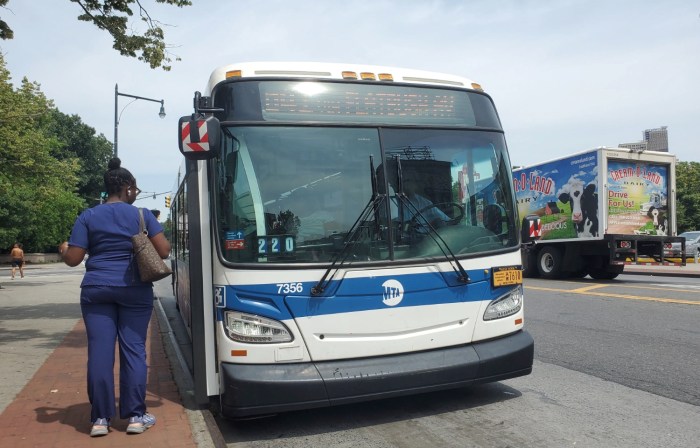By Scott Sieber
Ping Zhang Guan worked for five years as the home attendant for several patients in Queens, Brooklyn and Manhattan, but was seriously injured on the job recently while she was trying to assist her patients, she said.Her lawyer, Robert Saminsky, said those patients were severely disabled and Guan was often involved in altercations with some of their families who treated her with disrespect.Following one such altercation, a door was slammed on her hands, forcing her to take time off work to tend to damaged nerves and soft tissue, Saminsky said. Guan received workers' compensation of about $218 every two weeks for a brief period.”I could not live on that money alone, so I had to go back to work,” she said through an interpreter at a recent news conference in Flushing.In another incident, Guan injured herself while trying to save a patient from falling down the stairs and suffered a herniated disk in her back, she said.Guan is 54-years-old and lives with her 76-year-old husband and teenage daughter in Flushing.She received workers' compensation for several years, but Saminsky said that a recent investigation by the Workers' Compensation Board found that because Guan could not speak English, she was considered untrainable and her payments would be cut off.Saminsky and Flushing officials held a news conference Jan. 25 to protest the decision.”We take strong objection to this,” Saminsky said, adding that “the light of America gets a little dimmer” with the decision to take away a non-English speaker's compensation money because of a language barrier.Local 1199 healthcare union organizer David Ho, who represents 80,000 healthcare workers in the city, said Guan's story is an unfortunate reality of the business.”I'm not sure the public realizes how challenging home care work is,” Ho said. “There is lots of lifting of heavy patients. Injuries are very common to home care workers in general.”John Cho, a representative from City Councilman John Liu's office (D-Flushing) agreed.”The law is very clear: If you as a worker have been injured on the job, then you are eligible for compensation from the state,” he said. “Whether you speak another language or not should not be an issue.”Guan said she had tried to learn English several times before, but believed that her age and work schedule made the language too difficult to grasp. She said she was only able to pick up a few words.”Chinese women work very hard to try to make a living,” said Ethel Chen, president of the American Chinese Woman's Association. “She was injured and still came back to work. This is a case to urge people's attention, so people will know how to fight for their rights.”A spokesman from the Workers' Compensation Board said he could not comment on individual cases, but provided a statement saying “in a state as diverse as New York and with a work force as diverse as the state, it is absurd to suggest that the Workers' Compensation Board would make decisions based upon a claimant's race, ethnicity or language. The board often handles cases brought forth by claimants who do not speak English and we have, for years, at no charge to parties of interest, provided language translation services with the ability to translate 160 different languages.”—–Saminsky did say, however, that he did not believe there was a case for a discrimination suit.”Denying her benefits on the sole ground of her inability to speak English is definitely discrimination,” he said. “In this case, there is a little more to it than that.”Saminsky said she visited a branch of the Workers' Compensation Board, which was supposed to help retrain her, but instead issued a report claiming she had an insufficient education and language abilities.Guan is currently involved in litigation in an attempt to gain the maximum amount allowed, two-thirds of her income, or $400 per week, he said.Reach reporter Scott Sieber by e-mail at news@timesledger.com or by phone at 718-229-0300, Ext. 138.

































